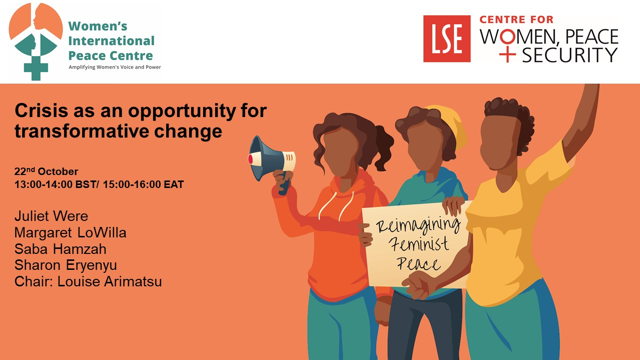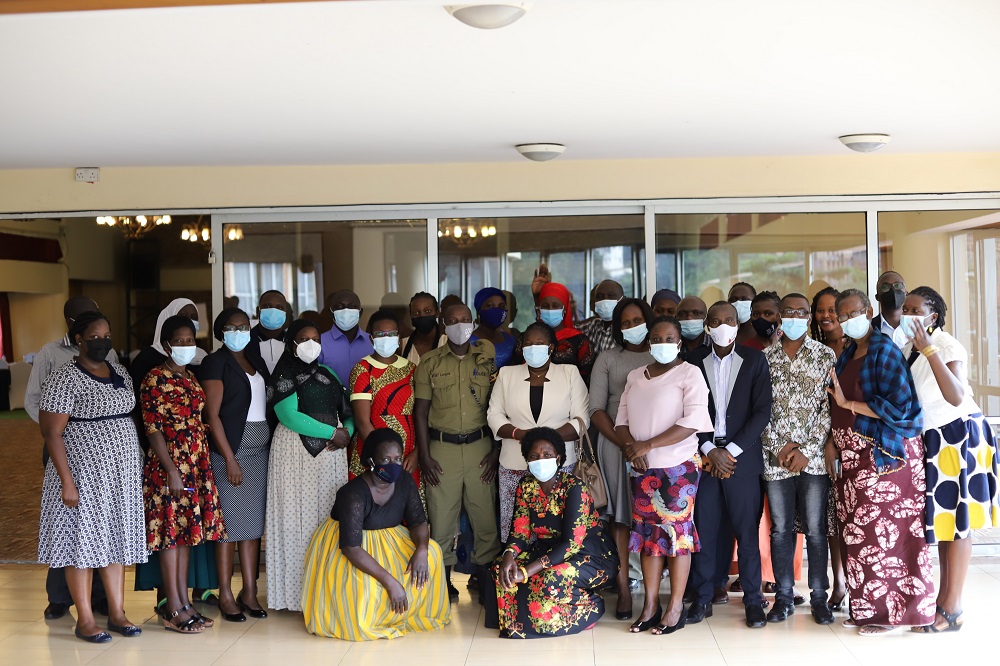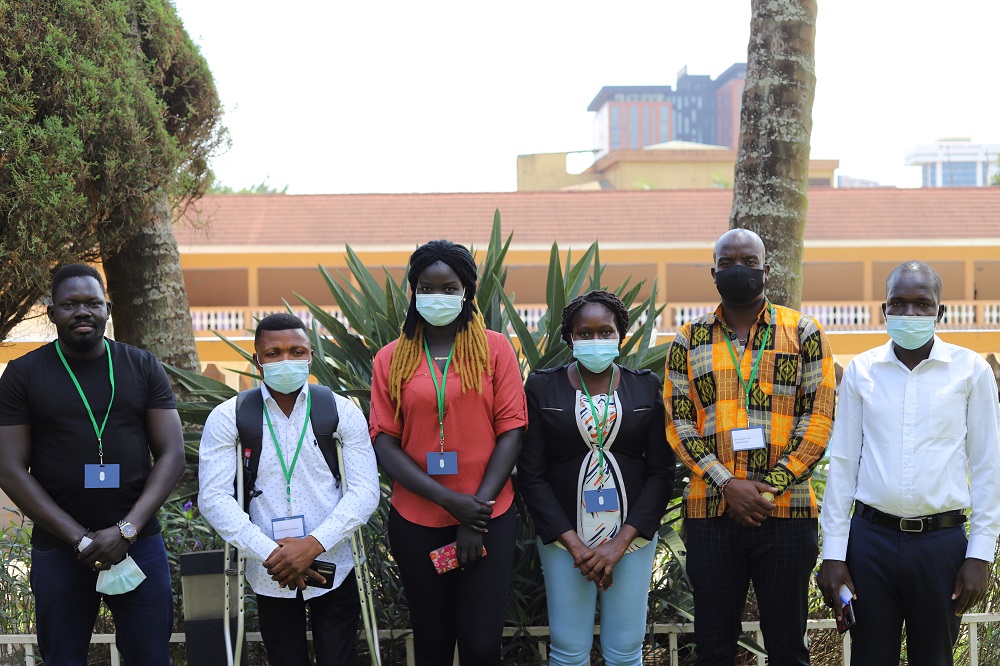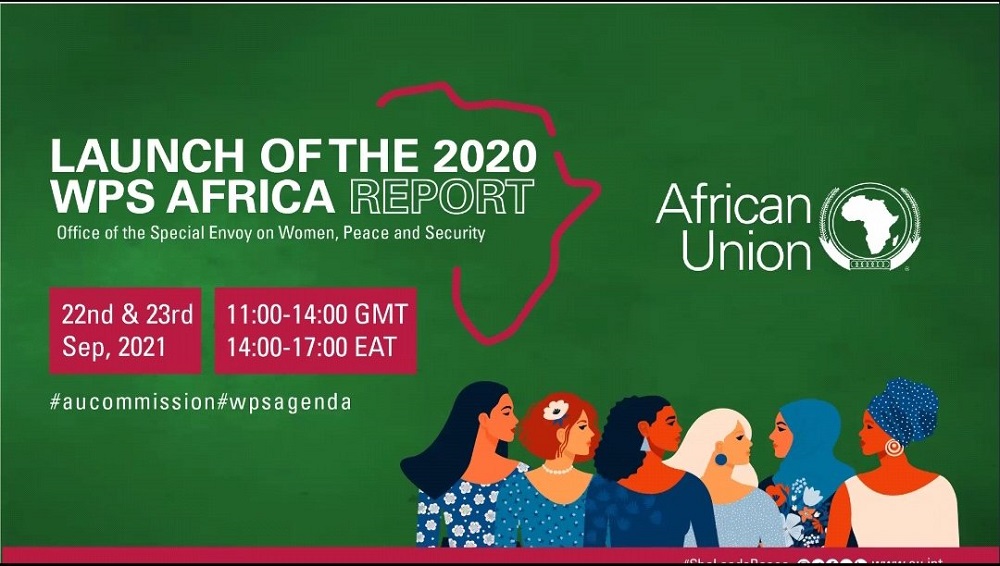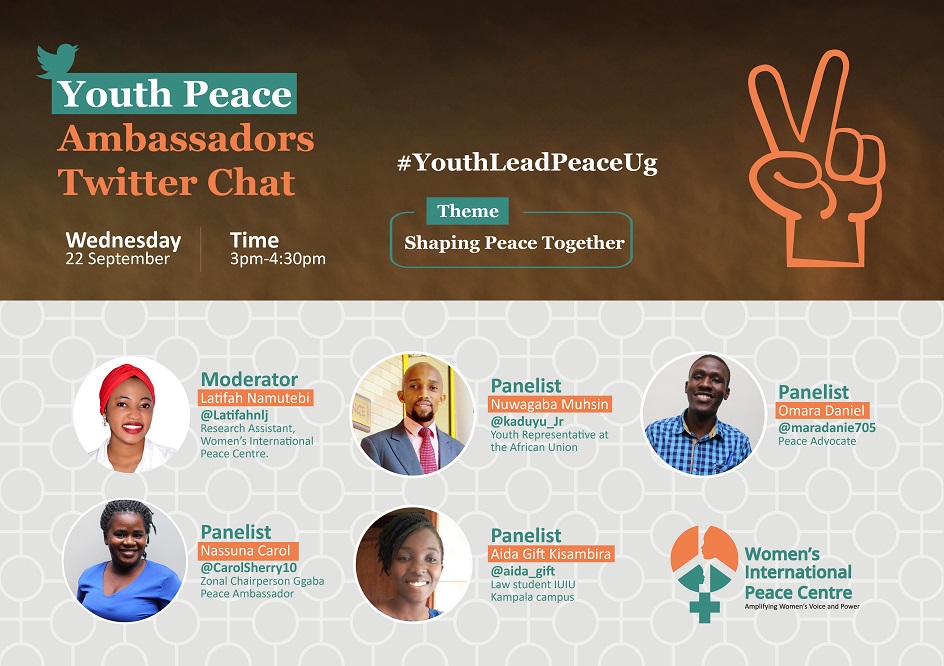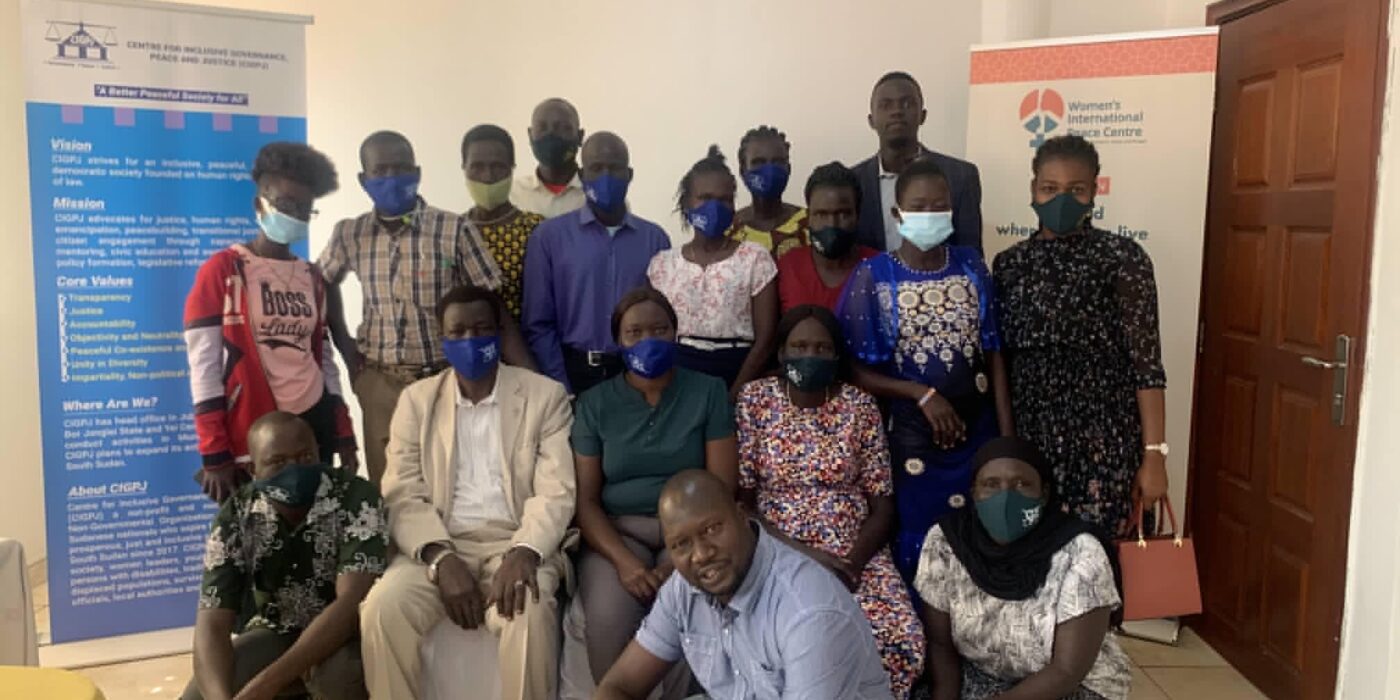Photo/Campaign for Female Education
By Margaret LoWilla
The notion of youthhood is highly contested and cannot be separated from political implications about the distance between young people and formal structures of power. The transition, often indicated by age, denotes a shift from childhood to adulthood. Beyond apparent and overt biological and physical changes is also positioning in the social order informed by cultural norms, gender and the economic and political context.[1]
This blog first explores the concept of youth as is related to politics and power. It then reflects on Young Women and their place in Women, Peace and Security (WPS) and Youth, Peace and Security (YPS) Agendas.[2] It serves as the starting point of a series, following the peacebuilding activities of three groups of Young Women Leaders in South Sudan, trained by the Women’s International Peace Centre (The Peace Centre) in partnership with the Centre for Inclusive Governance, Peace and Justice (CIGPJ). [3]
The Politics of Youthhood
At first glance, the term youth is used simply to define individuals who fall within a stipulated age category. For instance, the United Nations defines youth as individuals aged between 15 and 24, while the African Union and East African Community define youth as individuals between the age of 15 and 35. However, further exploration reveals that age categories are insufficient in determining youthhood. Definitions of youth vary in terms of age, space, time, location, gender, and socio-economic and political dynamics. As such, there are multiple categorizations of youth whose experiences differ considerably. [4]
Similarly, the meaning and definition of adulthood can shift easily from situation to situation. For example, in the context of conflict, age and gender roles are disrupted and disregarded as youth and women may commit acts of violence to ensure survival. Furthermore, in the case of the loss of parents, young people (of either gender) may be forced into the position of head of household, taking on the role of ‘protector’ and ‘provider’. In this way, categories of differentiation in age can vanish completely.[5]
The word ‘youth’ cannot be removed from politics and power. In African society, decision making and the public space is reserved for (male) adults and elites who seek to capture and maintain power. Politics is also an adult terrain where the subordination of the youth is justified in the name of culture and continuity.[6] Youth and age are socially constructed and easily manipulated. The capabilities of the youth are often exploited to sustain the power of those in authority while young people themselves feel increasingly disenfranchised, unable to access any tangible gains from the economy and society. Yet, their agency should not be underestimated, as their ability to organize their power to action can be an effective instrument for change as seen in the Arab Spring, #EndSars Movement in Nigeria, #Zimbabweanlivesmatter, and other social movements around the continent. [7]
Additionally, the gendered construction of youth cannot be ignored. The use of overly masculine definitions, social norms, roles and rights favour male youth over female youth. This mirrors the patriarchal organization of society, which aims to ensure that male youth inherit power. The power dimension of youth is also visible in the internationalization of Western notions of childhood, youth and adulthood.
The international policy and legal frameworks on childhood and perhaps youth, emphasize their innocence and victimhood. The implication is that they are considered only in terms of their vulnerability, negating their capacity as active agents during both peace and conflict.[8]
Situating Young Women in Peace and Security
The Women, Peace and Security (WPS) and Youth, Peace and Security (YPS) agendas call for inclusive planning, programme design, policy development and decision-making processes for conflict prevention, resolution and recovery.[9] United Nations Security Council resolution (UNSCR) 1325 is the landmark global normative framework that recognized the unique experiences of women and girls during armed conflict. UNSCR 1325 is extensive, consisting of 18 articles that are representative of four main pillars: participation, prevention, protection, relief and recovery.[10] United Nations Security Council Resolution (UNSCR) 2250 adopted in 2015 has 5 key pillars: participation, protection, prevention, partnerships and disengagement and reintegration. It is the first of its kind which acknowledges the role of youth in the peace process. The resolution calls for the inclusion of youth in decision making and further urges the Member States to establish mechanisms that would facilitate the meaningful participation of youth in peace processes.[11]
In peace and security discourse, youth and gender are often mentioned separately and treated as individual blocs. Customarily, the term ‘youth’ is used in reference to young men. [12] In the eight women, peace and security related United Nations Security resolutions ‘women’ are referenced all through, six give specific mention to ‘girls’[13]. “Youth” is included in UNSCR 2242, while UNSCR 2282 on the review of the Peacebuilding Architecture, adopted after UNSCR 2250 (2015), mentions “young people”. Young women are consistently subsumed into these different categories as they are not explicitly mentioned, likely leading to their exclusion.[14]
Reference to young women in policies is limited to their protection or addressing discrimination. This emphasis on their vulnerability consequently denies their agency and potentially transformative role in peacebuilding. In many contexts, young women face double discrimination for being young and female. As belonging to the youth category, they are marginalized from national and international public institutions that ignore and underestimate their critical contributions and potential. While in the women category they are left out due to assumptions about their abilities. At this intersection, gender and age biases combine to further limit the inclusion of young women in formal political and peace processes.[15]
In South Sudan, there are very few safe spaces where young women can meet to organize alliances and build friendships beyond the private/domestic sphere thus limiting their social networks and political awareness. In the case where women engage in public forums, they are often targets of intimidation. Real or perceived threats to their security contribute to their self-censorship and restrict them to the home.[16] Furthermore, discriminatory sociocultural norms and practices that hinder women and girls’ education, empowerment and economic freedom are the root causes of their limited participation.[17]
Women groups and youth groups have been known to work together to increase their power and influence on peace and political processes. However, this collaboration is not constant and certainly not guaranteed.
As senior women and young women often have diverging needs and priorities, established women’s groups may not automatically include young women or their perspectives to increase their participation in politics or peace processes. Furthermore, the reality of limited funding often results in support being directed to well-established women’s organizations.[18]
Young Women Building Peace in South Sudan
Though South Sudan is a signatory to both UNSCR 1325 and UNSCR 2250, young women’s participation in peace and political processes is limited. As the country is in the transitional phase of implementing the Revitalized Agreement on the Conflict in South Sudan (R-ARCSS), the participation of young women cannot be overemphasized.
One of the recommendations provided by the United Nations Department of Political and Peacebuilding Affairs (DPPA) on bridging the gaps between the WPS and YPS agendas is to, ‘Empower and support young women and their participation in peace and security initiatives and consider specific actions to support young women in leadership spaces.’[19] Accordingly, the Women’s International Peace Centre in partnership with the Centre of Inclusive Governance, Peace and Justice (CIGPJ) brought together and trained 20 young women aged 18 to 35 from political parties and civil society organisations to strengthen their capacity to participate in and influence peace processes and their outcomes from a gender perspective.[20] The young women were put in three groups, where they came up with action plans that they would implement. This series follows the implementation of the action plans to document and highlight the efforts of young women as active agents of peace.
[1] Fabiano, Chimwemwe et. al (2021) “Who Will Silence the Guns? (The Youth As African Solutions To African Problems),” Young African Leaders Journal, vol. 3, no. 19, https://digitalcommons.kennesaw.edu/cgi/viewcontent.cgi?article=1105&context=yaljod
[2] UN Women (2018), ‘’Young Women in Peace and Security: At The Intersection of The YPS and WPS Agendas,” https://www.youth4peace.info/system/files/2018-10/UNWOMEN_YPS.pdf
[3] Women’s International Peace Centre (2021), ‘’Refresher Training of Young Women Peace Builders in South Sudan,’’ https://wipc.org/refresher-training-of-young-women-peace-builders-in-south-sudan/
[4] Durham, Deborah (2000), ‘’Youth and the Social Imagination in Africa,’’ Anthropological Quarterly, Vol. 73, No. 3, https://www.researchgate.net/profile/Deborah-Durham/publication/240745366_Youth_and_the_Social_Imagination_in_Africa/links/5589668608ae2affe71502c7/Youth-and-the-Social-Imagination-in-Africa.pdf
[5] Ibid
[6] Diouf, Mamadou (1996), ‘’ Urban Youth and Senegalese Politics: Dakar 1988-1994,’’ https://www.wilsoncenter.org/sites/default/files/media/documents/publication/dioufe.PDF
[7] Durham, Deborah (2000)
[8] Boyden Jo (1997), “Childhood and the policymakers: A comparative perspective on the globalization of childhood,” https://www.taylorfrancis.com/chapters/edit/10.4324/9781315745008-10/childhood-policy-makers-jo-boyden
[9] UN Women, Preventing Conflict, Transforming Justice, Securing the Peace: A Global Study on the Implementation of United Nations Security Council Resolution 1325, 2015.
[10] What is UNSCR 1325? An Explanation of the Landmark Resolution on Women, Peace and Security,’ electronic source, United States Institute of Peace, https://www.usip.org/gender_peacebuilding/about_UNSCR_1325#:~:text=UNSCR%201325%20affirms%20that%20peace,the%20forging%20of%20lasting%20peace
[11] UNSCR 2250 | Introduction, https://www.youth4peace.info/UNSCR2250/Introduction
[12] United Nations Inter-Agency Network on Youth Development’s Working Group on Youth and Peacebuilding, ‘Young People’s Participation in Peacebuilding: A Practice Note’, with support from PeaceNexus Foundation, 2016. Available from: http:// www.un.org/en/peacebuilding/pbso/pdf/ Practice%20Note%20Youth%20&%20 Peacebuilding%20-%20January%202016. pdf
[13] UNSCR 1325, 1820, 1888, 1889, 1960, 2106, 2122 and 2242
[14] UN Women Progress Study on Youth, Peace and Security (2018), ‘Young Women in Peace and Security at the Intersection of WPS and YPS, New York
[15] Walker, D., Pereznieto, P., Bergh, G. and Smith, K. Partners for change: Young people and governance in a post-2015 world, ODI, Plan and Restless Development, 2014, p.11. Available from: http://restlessdevelopment.org/file/ partners-for-change-young-people-and governance-in-a-post-2015-world-pdf.
[16] United Nations, World Youth Report: Youth Civic Engagement, 2016. Available from: http://www.unworldyouthreport.org/images/docs/un_world_youth_report_youth_ civic_engagement.pdf.
[17] Soule, S. and Nairne, J., Are Girls Checking Out? Gender and Political Socialization in Transitioning Democracies, Center for Civic Education, 2006. Available from: http://www. civiced.org/pdfs/research/GenderAndPolitical. pdf.
[18] UN Women event, Building Sustainable Peace for all: Synergies between the WPS agenda and YPS agenda, 11 March 2017, United Nations Headquarters, New York.
[19] UNDPPA (2021), ‘Women Peace and Security (WPS) & Youth Peace and Security (YPS) Complementarities of the two agendas,’ Women Peace and Security (WPS) & Youth Peace and Security (YPS) Complementarities of the two agendas
[20] Women’s International Peace Centre, ‘Young Women Leading for Peace,’ Blog, https://wipc.org/young-women-leading-for-peace/


